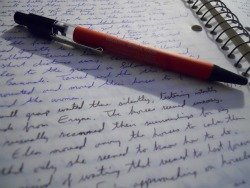Academic Proofreading
There’s only one important reason why people go to university or college.
That’s to get a good job when you graduate.
Academic proofreading can help you do that.
Because to get a good job you need to do well in your academic study. To do well in your academic study you need to produce well written and proofread work.
Academic proofreading is part of academic writing: the last part of the academic writing process. It isn’t something that can be done in isolation.
For you to effectively proofread your academic work you need to have completed the first parts of the academic writing process, the planning and writing stages.

The finalizing stage, where you proofread, can only improve what you’ve written in the first two. So if you do poor planning and/or you write a sub-standard piece of text, the proofreading stage will improve what you’ve written but you can only do so much in the proofreading stage.
This means that you need to apply yourself and work hard at all the stages of the writing process to get the maximum marks that you can.
Remember that academic work is about assessing your ability and knowledge. The contents of your written work will always be more important than how you present them, but poor presentation can adversely affect how the person marking the work views it.
Possibly it shouldn’t, but if you’ve got 50 or 100 essays to mark, you’re going to be less than happy every time you get one that’s hard to read or understand. Your lecturers are probably over worked, try to make their lives easier; and so, make them look at your writing favourably, by giving them work that’s easy and clear to read and understand.
If your grammar is correct, all the words have been used correctly and there aren’t any spelling mistakes or typos, your work will be much easier to read, so your teacher can concentrate on the information you present and the arguments you use to prove your point. It’s these parts, it's the contents and your argument that’ll account for most of the marks. Make sure they're clearly presented so they can be given the marks they deserve.
There’s plenty of information about proofreading in the proofreading section. But for academic proofreading the most important things to do, would be work somewhere without any distractions and proofread for each type of error separately.
Academic writing is formal writing so that means you’ll have to concentrate even harder than normal when proofreading academic writing.
Any distractions will cause you to lose your focus and so slow down the whole process, also you might miss something if you’re distracted and each mistake could cost you marks, so make sure you focus.
The language structures and styles might not be what you’re used to, if most of your writing has been less formal in the past. So to make sure that all the grammar is correct and you’ve used the best words you should read through your work several times. Each time focus on one part of grammar or on finding typos. Doing this will help you find each different type of mistake.
Also, as usual, when proofreading anything, have a break after finishing writing before starting to proofread and leave plenty of time to do the proofreading, as good proofreading takes time.

If you’d like to ask me any questions you can visit the Excellent Proofreading and Writing Facebook page or see the page about my proofreading service.

Return to Academic Writing from Academic Proofreading
Return to Excellent Proofreading and Writing Homepage from Academic Proofreading



By Jolyon Dodgson, copyright © 2011-2020.
Excellent-Proofreading-and-Writing.com - Proofreading and writing help for excellent first impressions.





New! Comments
Have your say about what you just read! Leave me a comment in the box below.